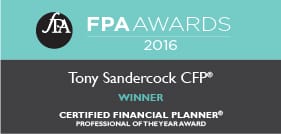07 5440 5794
|
You’re excited! The big day has finally come. You’ve dreamt of this moment for years; no more pointless Monday morning meetings, no more doing emails at 6am, no more of those ridiculous team-building events, no more strategic opportunities to leverage our game-changing, holistic, disruptive, evidence-based, sustainable blah blah blah nonsense. Soon, it will be just the two of you. Days spent playing with grandkids who love you for exactly who you are, sunny mornings on the golf course and leisurely walks on the beach - your very own version of nirvana! But what if it isn’t? What if those things you have looked forward to all these years are not enough to sustain you, to fulfil you, to energise you? You see, your work has been so much more to you than just a source of income. Most of us are identified by our job. Often, the first question you ask when you meet someone is, “So, what do you do?” What will you say when you aren't tied to a job anymore? A job is a way to feel good about yourself. It’s a social life. A job gives you purpose, pride and self-esteem. There are problems to be solved and new things to learn constantly. 99.9% of prospective retirees I speak with list money as their biggest concern. However, many already in retirement tell me that being isolated is their biggest challenge. They tell me that if you are not heading to an office or getting out and about each day, you can miss out on important social interaction, mental stimulation and learning opportunities that you need to keep good physical and emotional health and cognitive function. Something else I have observed (and personally experienced) is that the questions you ask yourself become more profound as you age. When you are younger, you can obsess over the sort car you drive, where you live and the stuff you have. But as you age and with time fast becoming the most precious commodity, ‘am I living the life I want to live?’ becomes the sort of question you begin to ask yourself. Retirees tend to focus more on their legacy. And not just ‘what do I want to leave behind?’, but ‘how do I wish to be remembered? ‘ In her wonderful book, Top 5 Regrets of the Dying, palliative care nurse, Bronnie Ware, writes of her deeply personal discussions with people in the last days of their lives. She discovered five recurring regrets:
At wetalkmoney, working with our clients to help them enjoy a rich and rewarding retirement is what we do. Yes, money is one part of that equation, as are Health, Identity, Purpose and Relationships. The following 11 Tips come from 28 years working with, observing and learning from retirees in their pursuit of a fulfilling life after full-time work. I hope there is something of value here for you. Pro Tip 1 - Start planning long before you retire Most of you currently spend more time arranging your annual holidays than you do planning your retirement. The thing is, the future is coming, whether you plan for it or not. The question you should ask yourself is “will I have the retirement I want, or the one that happens by default?" Retirement Saving or Planning? Retirement saving is what you need to do as soon as you can. This is the process of putting away some money that will fund your retirement years. Do this as soon as you have enough available cash. Retirement Planning on the other hand is about working out the kind of lifestyle you want, where you want to live, when you retire and at what age you want to stop working. These are all things that you should have some answers for at least in you mid to late 40s. If your retirement is not serious enough to plan for ahead of time, then don’t expect it to be what you want when it does come. Pro-Tip 2 Do a Personal Stocktake Before evaluating your Economic Capital, check your Human Capital. What are your skills, your passions, your experiences, your knowledge? Increasingly, our identity is wrapped up in our work. What will you miss the most? How will you replace that? What are your key strengths? You can start with Gallup’s excellent Strengths Finder. It costs just $20 and will produce a detailed report on your strengths. Then, take the National Seniors Retirement Quiz. This quiz assesses your retirement preparedness in terms of three resource types – health and finance; social; and emotional, cognitive and motivational. Read more about Personal Stocktake here, and why you should bother. Pro-Tip 3 - Create a list of the things to do in your retirement Not just those places you’d like to visit, but experiences you’d like to have, skills to acquire, languages to learn, hobbies to pursue and relationships to rebuild. The following is a list of some of our favourite books and websites to peruse for ideas and inspiration:
Pro-Tip 4 – Find Out Exactly How Much Money You Will Need Sounds simple enough, but simple does not always equal easy. This can be quite hard to do - - most worthwhile things are! The first step is to work out how much and where you spend your money currently. Now if you have no cash in your bank account, it’s a fair bet that you spend the entire amount you earn. To work out where it all goes, you’ll need to monitor your spending for a while. There are any number of apps that can help you do this, Pocketbook and Moneysoft are popular. Be cautious about excluding ‘one-offs’ as they have a nasty habit of repeating themselves. Then apply the ‘Retirement Smile’. Most retirees assume they will spend less in the retirement years but this doesn’t always happen. In fact, spending could increase during the first decade, a time when you have energy and health. This is the time for travel, for exploration, for doing different things. Then the next decade will likely see a significant drop in spending (how many times can you visit the Pyramids?), followed by a surge in health-related expenses in the final decade. Assume the superannuation rules will gradually become less favourable and the pension will be harder to get. And don’t forget inflation, which will erode your standard of living over time. Allow plenty room for error. Pro-Tip 5 - Estimate if you have enough To give you an idea of how much capital is actually required to fund a long term income, let’s consider this very commonly used rule of thumb: In retirement you can withdraw 4% of your assets each year. The influential study that explains the 4% rule is the Trinity Study conducted by University Professor, William Bengan. It set out to determine "the safe withdrawal rate" (or how much you can spend each year without running out of money) for an investment portfolio of 50% shares and 50% fixed interest. Using historical share and bond market data to assess the ups and downs of markets from 1926 to 2009, the study found that the safest withdrawal rate was 4%. Bengen said: "Assuming a minimum requirement of 30 years of portfolio longevity, a first-year withdrawal of 4 percent, followed by inflation-adjusted withdrawals in subsequent years, should be safe. In no past case has it caused a portfolio to be exhausted before 33 years, and in most cases it will lead to portfolio lives of 50 years or longer." Another way to think about this is to use the inverse of 4% (or 25). If you have 25 times what you think you'll need from your portfolio for your first year of spending (after accounting for Social Security and other non-portfolio sources of income), you can feel confident that you'll have enough to last through 30 years of retirement. Read more about the 4% rule here. What to do if there is a shortfall? You can either work longer, work part-time, spend less or take more risk. There is no magic bullet. However, you can be more creative, for example, you could downsize your home or you could take out a reverse mortgage and remain where you are. Pro-Tip 6 - Spend Wisely In a research paper intriguingly entitled ‘If money doesn’t make you happy then you probably aren’t spending it right’, Harvard Psychologist Professor Daniel Gilbert recommends the following spending principles.
Pro-Tip 7 – You are your own worst enemy. Know your limitations We are human which means emotions can get the better of us. As a result, we panic sell when markets are poor, we become over ambitious when markets are good, we look for evidence that supports our view (and ignore contradictory information) and we overestimate our ability to beat the market. By being wary or your instinctive behaviour, you are more likely to avoid the common investment pitfalls.
Pro-Tip 8 – Set Clear Goals Those that have a goal and aim to achieve it will invariably do better than those that have no goal at all. This is a really important piece of the puzzle that is missing for many people. Hazy concepts don’t work. Goal setting really is our internal success mechanism. When you have specific goals, you develop purpose, you develop direction, and you develop focused and channelled energy. For more on the importance of goals, read this . Pro-Tip 9 – Keep Things Simple You’ll rarely hear me talk about the technical side of financial advice. This is not because I think you won’t keep up. It’s because 95% of managing money is just common sense. And even the other 5%, the technical detail, can be explained in plain terms. So much of what I see in financial planning is unnecessary complication masquerading as additional value. Money is in fact quite a simple business and can be made to look and sound complicated to justify fees. Pro-Tip 10 - Commence An Encore Career According to encore.org, nearly nine million people in the US aged 44 to 70 are engaged in second-act careers. Says Mark Freeman in The Big Shift, ‘There is the financial question of how you will support yourself, and then there is the existential question of who are you going to be.’ Emerging trends are that retirees are going back to school. Others are becoming entrepreneurs by reviving shelved passions and phasing out work rather than stopping overnight. Pro-Tip 11 - Seek Professional Help Working with a good financial adviser will provide you with a retirement framework and the discipline to stick with your plan. The world’s largest Index fund manager, Vanguard, in this research paper entitled Quantifying Vanguard’s Adviser’ Alpha, argues that good financial advice will add as much as 3% to investment returns through effective asset allocation, behavioural coaching and wealth management advice. If you are going to get advice, make sure it is the right type - free of the conflicts of interest that distort advice. Learn more here. It's Time To Live The DreamFor one brief moment, reflect on your enthusiastic yet naive 18-year-old self, leaving school and entering the big wide world for the first time. What advice would you give yourself? What did you not get to be? What is still left to do? Life is not a dress rehearsal. You still have time. Good luck! Subscribe to regular updates sharing our best ideas on wealth management and personal development. Just enter your email for tips and resources to get your financial house in order and positively impacting your life today. IMPORTANT This information is of a general nature only and may not be relevant to your particular circumstances. The circumstances of each individual and investor are different and you should not act on this information without speaking to a financial, tax or legal adviser, who can consider if the financial product and strategies are appropriate for you. To the extent permitted by law, no liability is accepted for any loss or damage as a result of any reliance on this information. See full Terms and Conditions here.
Andre
9/4/2016 07:38:41 pm
Thanks for putting this together Tony. I did the strengths test, 20 bucks well spent.
Reply
Tony
1/5/2016 07:03:14 pm
Thanks Andre, I got a lot out of it too.
Reply
Peter
9/4/2016 07:45:06 pm
The 4% rule of thumb makes it impossible for me. My super fund has a calculator that says I need a third of the 4% rule. How can there be so much difference?
Reply
Peter
1/5/2016 07:07:59 pm
This article will explain why. Let me know if you have any questions.
Reply
Arthur
10/4/2016 06:04:38 am
Thanks for the tip on encore.org, what a great initiative. We need something like this in Australia.
Reply
Tony
1/5/2016 07:03:52 pm
Potential business opportunity for you Arthur?
Reply
Your comment will be posted after it is approved.
Leave a Reply. |














 RSS Feed
RSS Feed

6/4/2016
6 Comments